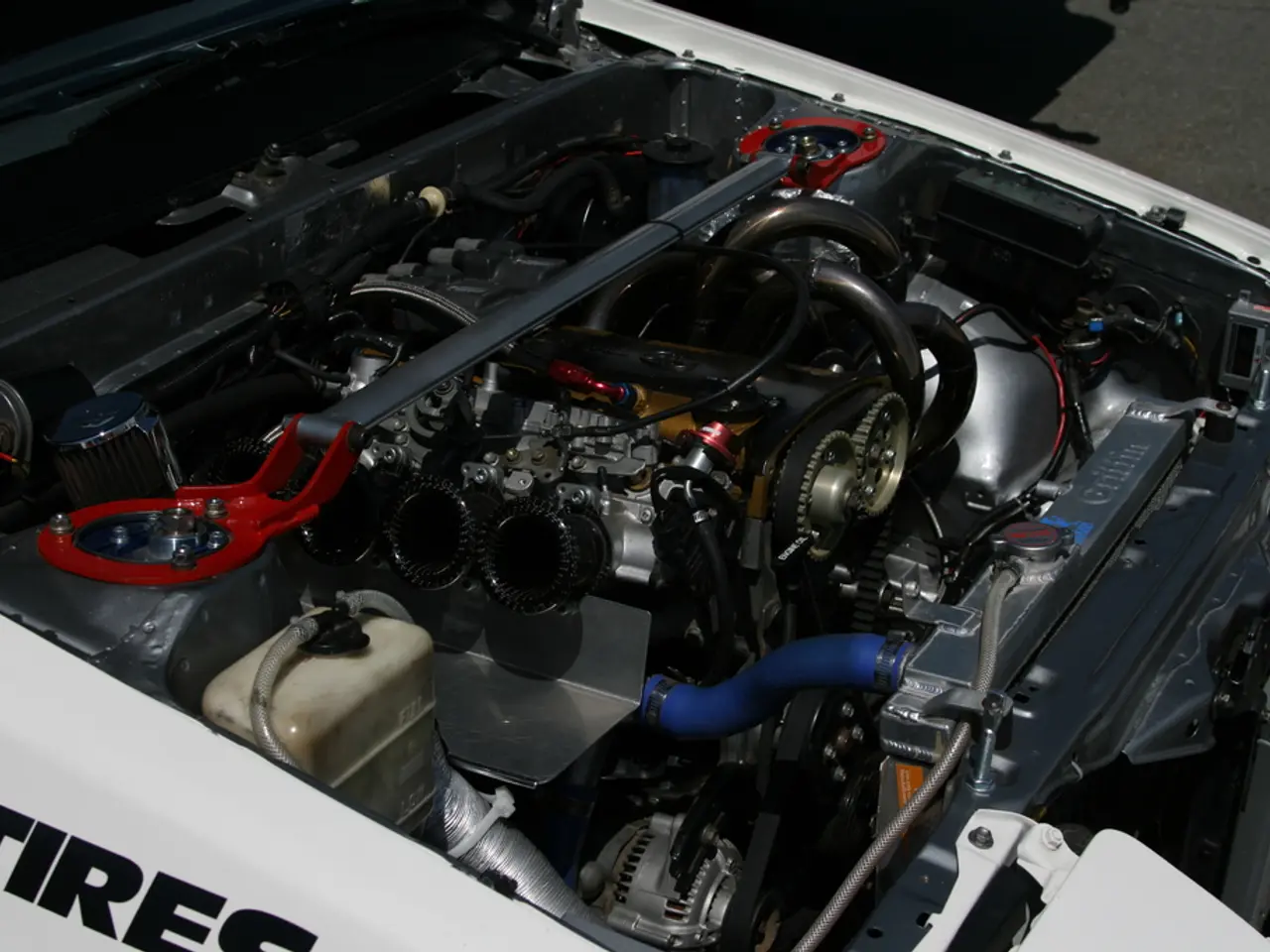Lithium Extraction: A Highly Detrimental Process Leaving an Indisputable Environmental Footprint
Europe's ambition to reduce dependence on foreign lithium imports and power its electric vehicles (EVs) has sparked a series of mining projects across the continent. However, these plans have been met with significant opposition due to the environmental and social risks associated with lithium extraction.
The proposed lithium mine in Portugal and Rio Tinto's planned mine in Serbia's Jadar Valley, for instance, have raised concerns about water contamination and scarcity. These projects risk polluting local water supplies with hazardous chemicals from tailings and mine wastewater, threatening drinking water, agriculture, and livestock livelihoods.
Moreover, there are warnings about unsafe tailings pond designs that could fail catastrophically during heavy rainfall, increasing the risk of environmental disasters. Mining activities also cause noise, dust, and light pollution, adversely affecting local communities and wildlife.
In addition, the destruction of agricultural land and ecosystems is a significant concern. Mining damages farmland and natural habitats, undermining rural communities’ traditional ways of life. Transparency and governance issues have also been raised, with NGOs criticizing the EU’s approval process for strategic lithium projects as lacking transparency and accountability.
Despite these challenges, the European Union is pushing ahead with its plans to achieve climate neutrality by 2050. The transport sector, producing around a quarter of EU's CO2 emissions, is a key target for decarbonization. However, the focus on lithium for EV batteries may lead to a lithium crisis if alternatives are not also explored.
While lithium remains the most crucial element for modern EV batteries, there is ongoing research into sodium-ion batteries as a potential alternative. However, these currently offer lower performance and face uncertain commercialization timelines. Recycling lithium-ion batteries is an important partial solution to reduce the need for new mining and lower environmental impacts.
Broader sustainability in mobility also requires rethinking transport systems. Prioritizing public transit, avoiding larger cars, and other holistic approaches to sustainable transport are crucial to complement technological solutions.
In recent months, community opposition has forced the temporary halt of several lithium projects, including the Vulcan Energy plant in Germany. The Jadar Valley project in western Serbia, which contains enough lithium to produce 1 million EV batteries, meeting Europe's needs for several decades, remains a contentious issue due to environmental damage and displacement concerns.
As Europe moves towards a greener future, striking a balance between environmental sustainability, social responsibility, and economic growth will be key. The search for sustainable alternatives to lithium in EV batteries and a holistic approach to sustainable transport will play a crucial role in this endeavour.
- Europe's ambition for climate-neutrality by 2050, particularly in the transport sector, necessitates exploring alternatives to lithium for electric vehicles (EVs) to prevent a potential lithium crisis.
- The environmental-science community raises concerns about lithium mining projects like the proposed mine in Portugal and Rio Tinto's planned mine in Serbia's Jadar Valley, due to risks of water contamination, scarcity, and environmental disasters.
- Renewable-energy sources, such as sodium-ion batteries, are being researched as potential alternatives to lithium, but they currently offer lower performance and face uncertain commercialization timelines.
- The industry, including the real-estate and business sectors, should invest in education-and-self-development, particularly in fields like data-and-cloud-computing, to devise more sustainable solutions for energy storage.
- Personal-growth and environmental awareness are interconnected, and individuals can contribute to sustainable-living by advocating for recycling lithium-ion batteries, reducing their carbon footprint, and supporting energy-efficient home-and-garden practices.
- The lithium mine in Portugal and the Jadar Valley project in Serbia pose social risks, threatening local communities and wildlife with noise, dust, and light pollution, as well as potential displacement.
- Transparency and proper governance are essential in the approval process for strategic lithium projects, to ensure accountability and minimize the impact on vulnerable communities.
- Technology plays a significant role in addressing climate-change, but a holistic approach is necessary, which includes prioritizing public transit and sustainable transport practices to reduce dependency on electric vehicles.
- Community opposition and concerns over environmental damage, social responsibility, and governance issues have temporarily halted several lithium projects, underscoring the need for a balanced approach to Europe's green transition.







